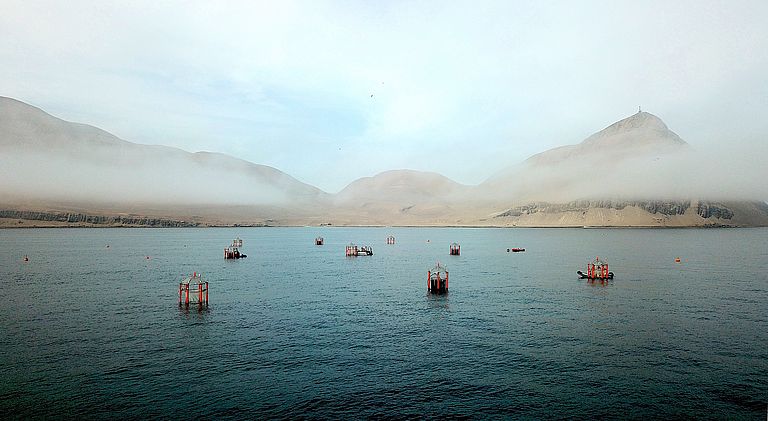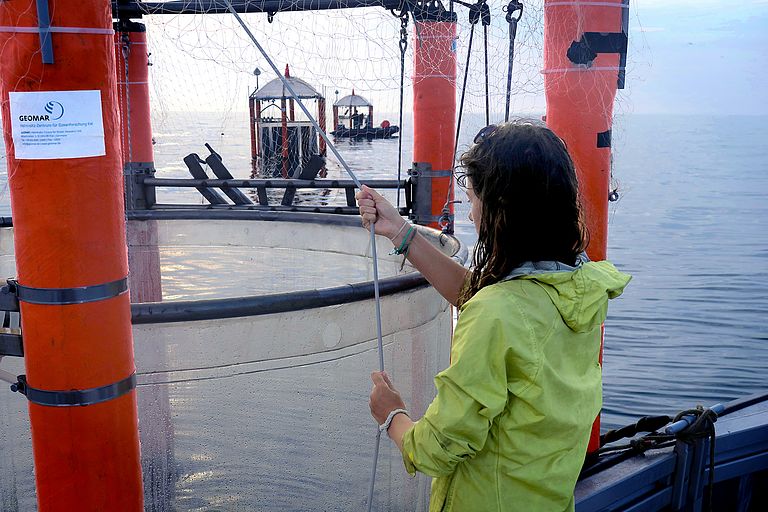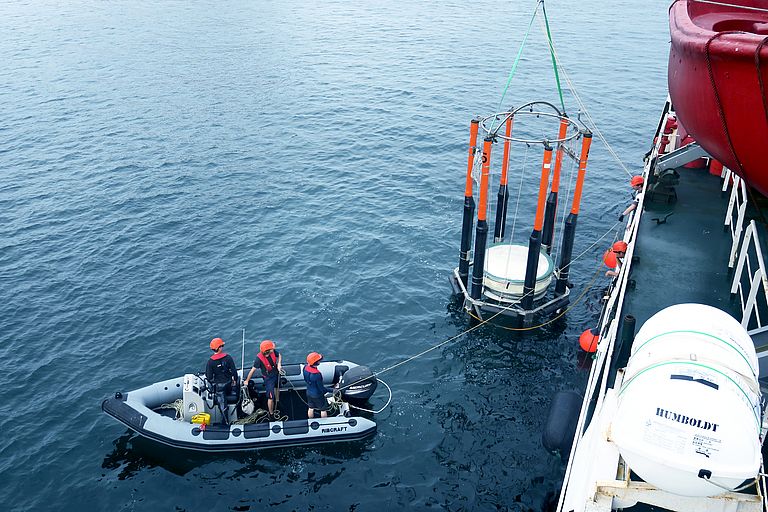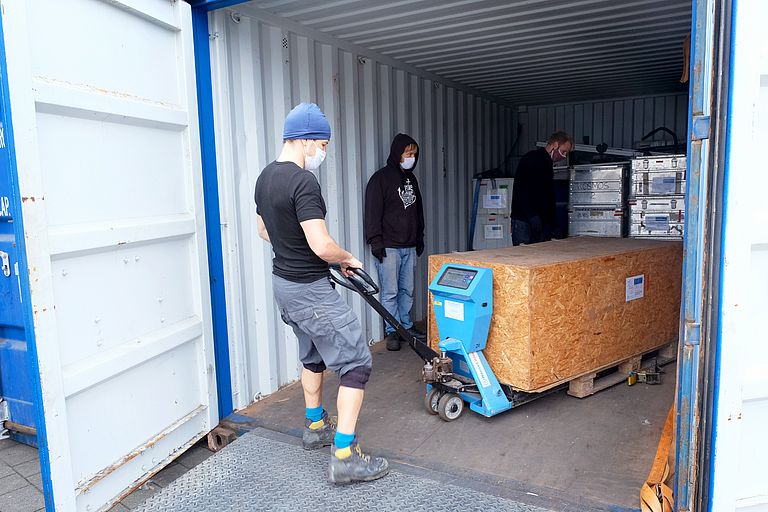Back from lockdown: Expedition material back in Kiel
Containers of the research project CUSCO arrive at GEOMAR with a 6-month delay
When on Tuesday morning trucks with five containers with material rolled onto the premises of GEOMAR, Prof. Dr. Ulf Riebesell was relieved. The containers belong to a research expedition of the GEOMAR project CUSCO. The scientific campaign in spring 2020 was to study the influence of human-induced climate change on particularly productive coastal fishing areas. Then the scientists were surprised by the sudden and consequent Peruvian lockdown. In the meantime, they have all been able to return to Germany. However, the return transport of the extensive expedition material to Germany is proving to be extremely difficult due to Corona and already comes with a high additional expenditure of time and money.
"We are relieved that we can finally receive our first material containers in Kiel," says Professor Ulf Riebesell, head of the CUSCO project and the research expedition, happily. "When we unexpectedly found ourselves in a Peruvian lockdown, we had no idea what was in store for us. The most important thing then was to get everyone home safely. And we succeeded in doing so. But what would happen with our material, the samples and the research results was written in the stars. Now it looks like a happy ending for the time being. Only for our mesocosms and our samples we still have to keep our fingers crossed." Many of the samples taken on site are still on their way or waiting for clearance in Peru. Some have to be cooled continuously at -80°C. This makes safe and reliable transport to the capital of Schleswig-Holstein difficult.
The KOSMOS mesocosms are marine research platforms which were developed at GEOMAR and have already been used in many marine regions. They are like oversized test tubes in the ocean, in which various environmental parameters can be changed in a targeted manner and thus the influence of climate change on natural ecosystems can be studied. The nine mesocosms of the CUSCO project are still waiting in Peru to be transported back to GEOMAR. The worldwide unique research platforms are urgently needed for the next planned mission.
The coastal upwelling area off Peru is one of the most productive ecosystems worldwide, with enormous importance for global food security. The results of the CUSCO research expedition's mesocosmos study should enable a better assessment of the consequences that the climate crisis will have on these areas, which are equally important for biodiversity and human supply.







